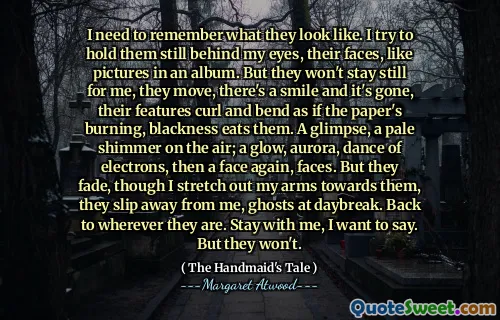But if it's a story, even in my head, I must be telling it to someone. You don't tell a story only to yourself. There's always someone else.Even when there is no one.A story is like a letter. Dear You, I'll say. Just you, without a name. Attaching a name attaches you to the world of fact, which is riskier, more hazardous: who knows what the chances are out there, of survival, yours? I will say you, you, like an old love song.
The quote emphasizes the intrinsic nature of storytelling as a means of communication. It suggests that even when one is storytelling in solitude, there is an implied audience. This connection to another, whether real or imagined, transforms the act of storytelling from a private endeavor into something universal. The storyteller is compelled to share their narrative with "someone," reflecting the human desire for connection and understanding through shared experiences.
Additionally, the comparison of a story to a letter underlines the personal and intimate aspects of storytelling. By referring to the recipient as "you," the narrator evokes a sense of familiarity and emotional engagement, akin to reaching out to an old friend. Detaching from specifics allows for a more open interpretation and invites readers to find resonance in their own lives, highlighting the risks involved in facing the world with honesty and vulnerability through storytelling.






